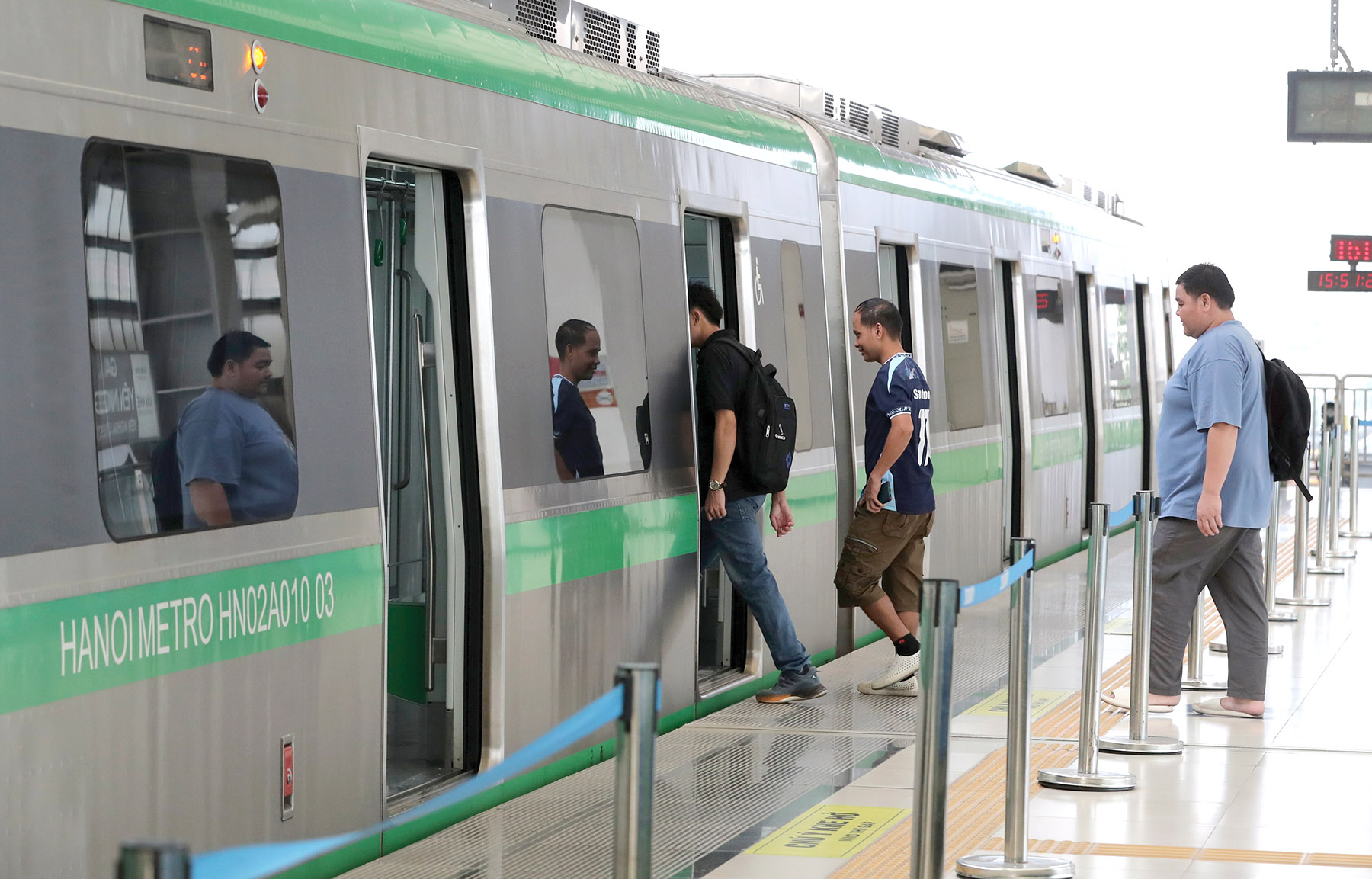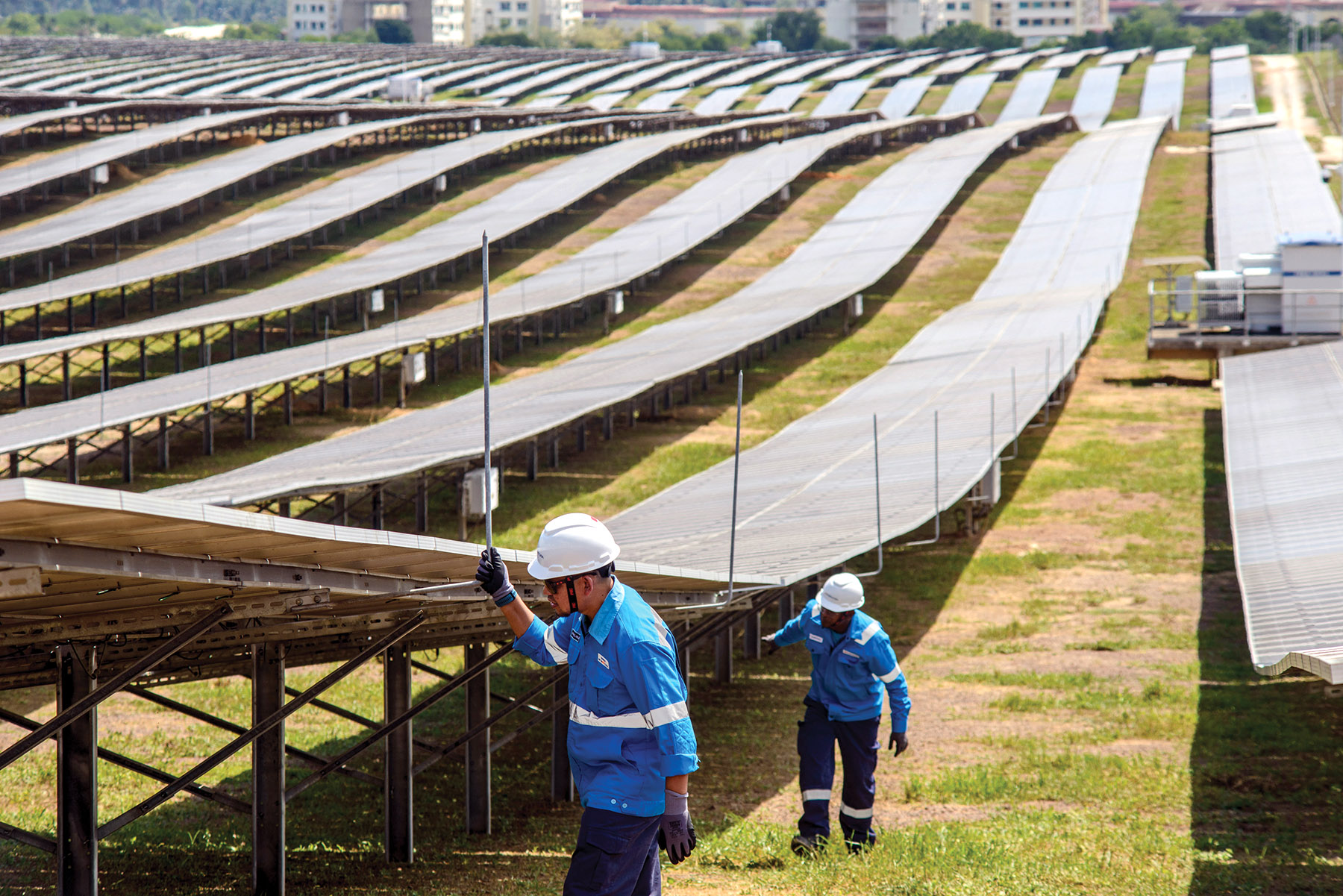Neighborhood diplomacy reaffirmed as China’s pillar of foreign policy to safeguard region amid US tariff chaos

As the tariff war launched by the United States is surging across the world and having an impact on the fragile global economy, China’s commitment to promoting the building of a community with a shared future for mankind has become more relevant in saving the world from a chaotic lose-lose scenario.
At a central conference on work related to neighboring countries, which was held in Beijing from April 8 to 9, President Xi Jinping reiterated the importance of building a community with a shared future with neighboring countries.
A statement released after the meeting highlighted neighboring countries as an important foundation for China to achieve development and prosperity, a key front to maintain national security and a priority area in the country’s overall diplomacy.
They are also a crucial link in the building of a community with a shared future for mankind, the statement said.
The meeting, which was attended by all the members of the Standing Committee of the Political Bureau of the Communist Party of China Central Committee, China’s top leadership, came as geopolitical competition between major countries has a greater bearing on the regional situation.
It was noted at the meeting that China’s relations with its neighbors are in their best period in modern times. Meanwhile, they are entering a stage of deep interconnection between the regional situation and the evolution of the global landscape.
Efforts should be made to coordinate both the domestic and international situations, synergize development and security, and hold high the banner of building a community with a shared future for mankind to work with neighboring countries to create a better future together, according to the statement.
It was highlighted at the meeting that in building a community with a shared future with neighboring countries, it is important to consolidate strategic mutual trust, support regional countries in pursuing their own development paths, and properly manage conflicts and differences.
It is essential to strengthen alignment of development strategies, promote high-level mutual connectivity, and intensify industrial and supply chain cooperation, the statement said.
The meeting’s participants underlined the need to uphold regional stability and jointly address various risks and challenges by engaging in security and law enforcement cooperation. They also called for expanding people-to-people exchanges and facilitating mutual visits.
Guided by head-of-state diplomacy, China has worked with neighboring countries to deepen all-around cooperation, strengthen exchanges in various fields, and maintain peace and stability, thereby securing historic achievements and transformation in neighborhood work, according to the meeting.

While presiding over the meeting, Premier Li Qiang stressed the need to thoroughly implement the spirit of Xi’s important speech and to earnestly carry out the various tasks in work related to neighboring countries.
At the Central Conference on Work Relating to Foreign Affairs, which was held in November 2014, Xi reiterated the need to build a neighborhood community with a shared future based on amity, sincerity, mutual benefit and inclusiveness. To this end, China will foster friendship and partnership with neighboring countries, build an amicable, peaceful and prosperous neighborhood, and enhance mutually beneficial cooperation and interconnectivity, he said.
Over the past decade, China has established diverse and substantive partnerships, cooperative relations and strategic relations of mutual benefit with 28 neighboring countries and the Association of Southeast Asian Nations (ASEAN), according to the Foreign Ministry.
It has reached common understandings on building a community with a shared future with 17 neighboring countries, signed Belt and Road cooperation agreements with 25 neighboring nations, worked to synergize the Belt and Road Initiative with the cooperation plans of ASEAN and the Eurasian Economic Union, and remained the largest trading partner of its 18 neighbors.
China took the lead in ratifying the Regional Comprehensive Economic Partnership, the largest free trade agreement in the world, enabling and enhancing regional economic integration. It works with countries in the region to make Asia a demonstration zone for Belt and Road cooperation and a pilot zone for implementing the Global Development Initiative, the Global Security Initiative and the Global Civilization Initiative.
Zhou Fangyin, a professor of international relations at Guangdong University of Foreign Studies, said that China has for decades consistently placed great importance on its neighborhood diplomacy, emphasizing cooperation with neighboring countries, actively fostering partnerships and advocating shared development with them.
The consistency and stability of Beijing’s neighborhood diplomacy has become a prominent factor of certainty in the region against the backdrop of the turbulent international landscape, Zhou said.
“Currently, China’s surrounding environment is becoming increasingly complex and dynamic. The impact of major-country competition on the regional landscape has intensified, with uncertainties and instabilities becoming more pronounced,” Zhou said.
He noted that the US administration is implementing a highly protectionist and bullying tariff policy, which has significantly undermined global trade and regional supply chains.

The disruptive policy makes it more necessary for China and its neighboring countries to strengthen economic and trade cooperation to mitigate the impact of the hefty tariffs, Zhou added.
In October 2023, China released a policy document, titled “Outlook on China’s Foreign Policy on Its Neighborhood in the New Era”, comprehensively outlining the achievements, policies, visions and objectives of its neighborhood diplomacy. It declares China’s commitment to pursuing the path of peaceful development, promoting development of its neighbors through its own development, and working with countries in the region to advance modernization.
China will seek to develop itself while safeguarding regional peace and development, continue creating new opportunities for neighboring countries with China’s new development, and follow a path of open, cooperative and win-win development together with neighboring countries, the document said.
China will remain committed to the vision of common, comprehensive, cooperative and sustainable security, and work with countries in the region to maintain regional peace and stability, it said, adding that Beijing rejects the Cold War mentality, unilateralism, group politics and bloc confrontation.
Observers said that amid the ever-evolving global landscape, China’s neighborhood diplomacy stands as a pillar of its foreign policy, embodying its commitment to fostering peace, stability and cooperation in the region.
ASEAN is a priority for China’s neighborhood diplomacy and a key region for high-quality Belt and Road cooperation. In 2024, total trade between China and ASEAN reached 6.99 trillion yuan ($948 billion), marking a 9 percent increase year-on-year and accounting for 15.9 percent of China’s total foreign trade. The two sides have been each other’s largest trading partner for five consecutive years.
Demonstration projects such as the China-Laos Railway, Cambodia’s Phnom Penh-Bavet Expressway and Indonesia’s Jakarta-Bandung High-Speed Railway have connected key nodes in regional infrastructure, improving the host countries’ infrastructure development levels and injecting strong momentum into regional economic development. In December 2024, China and Vietnam signed an intergovernmental agreement to cooperate on the construction of three standard-gauge railway lines.
Zhai Kun, a professor at the School of International Relations at Peking University, said that interconnectivity cooperation is a vivid practice of common development and mutual benefit between China and ASEAN, serving as a crucial support for the building of the China-ASEAN community with a shared future.
Han Zhiqiang, Chinese ambassador to Thailand, said that China and Thailand have been working to strengthen the alignment of development strategies, with flourishing cooperation in the green economy, digital development, artificial intelligence and other fields.
The relationship between China and Thailand demonstrates the practice of the principle of amity, sincerity, mutual benefit and inclusiveness in China’s neighborhood diplomacy, Han said.
He added that he is confident the future of China-Thailand relations will be even brighter, and the shared future between China and its neighboring countries will lead to a better tomorrow.
Han Chunlin, Chinese ambassador to Kazakhstan, said that guided by the principles of amity, sincerity, mutual benefit and inclusiveness in its neighborhood diplomacy, China has achieved fruitful results in the development of relations with Central Asian countries.
“Together, we are working to create the next ‘golden 30 years’ for our bilateral relations and jointly building a community with a shared future between China and Central Asia,” Han said in an article published by People’s Daily on April 9.
caodesheng@chinadaily.com.cn


